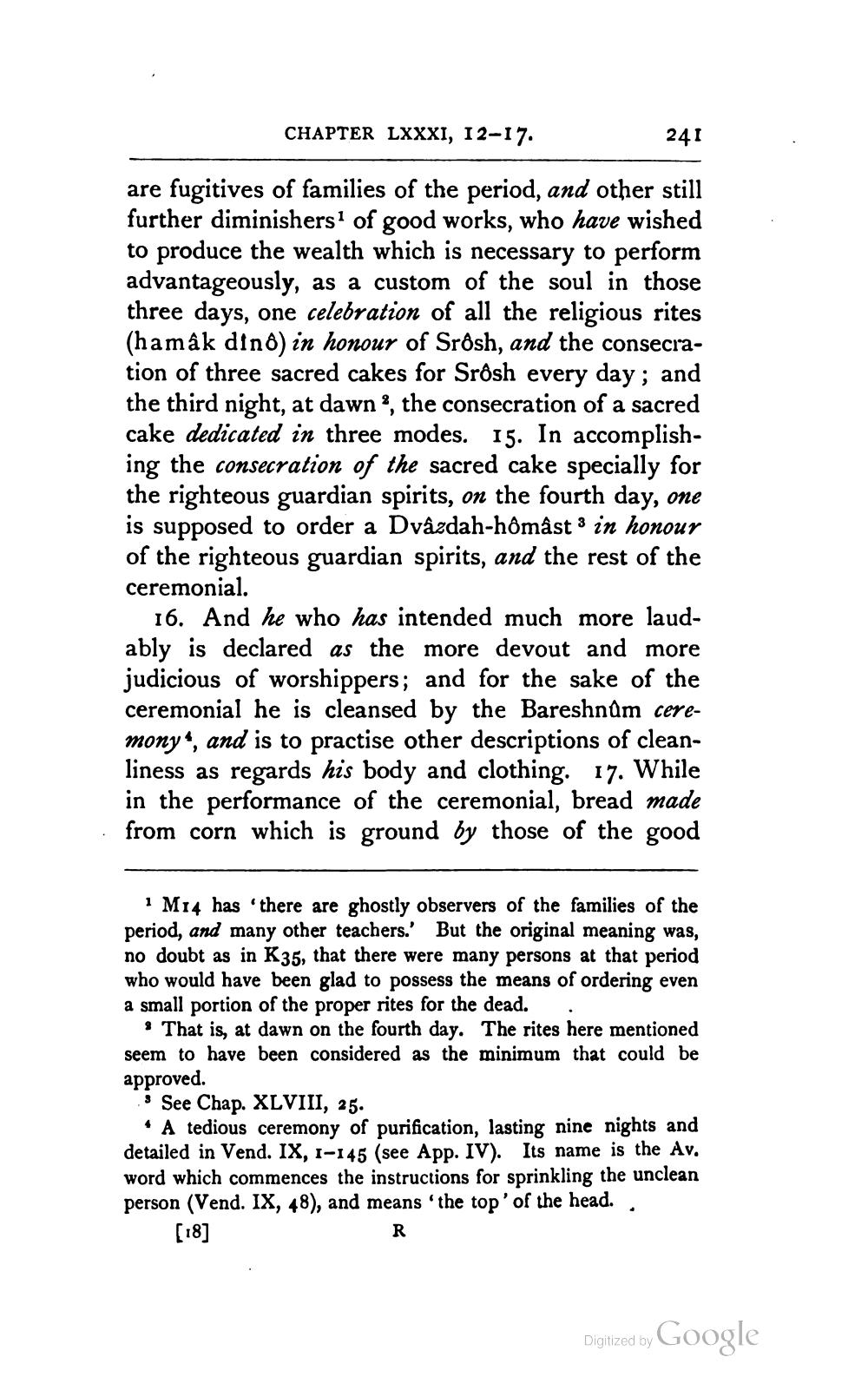________________
CHAPTER LXXXI, 12-17.
241
are fugitives of families of the period, and other still further diminishers? of good works, who have wished to produce the wealth which is necessary to perform advantageously, as a custom of the soul in those three days, one celebration of all the religious rites (hamâk dino) in honour of Srôsh, and the consecration of three sacred cakes for Srôsh every day; and the third night, at dawn, the consecration of a sacred cake dedicated in three modes. 15. In accomplishing the consecration of the sacred cake specially for the righteous guardian spirits, on the fourth day, one is supposed to order a Dvâzdah-hômåsts in honour of the righteous guardian spirits, and the rest of the ceremonial.
16. And he who has intended much more laudably is declared as the more devout and more judicious of worshippers; and for the sake of the ceremonial he is cleansed by the Bareshnam ceremony", and is to practise other descriptions of cleanliness as regards his body and clothing. 17. While in the performance of the ceremonial, bread made from corn which is ground by those of the good
1 M14 has 'there are ghostly observers of the families of the period, and many other teachers.' But the original meaning was, no doubt as in K35, that there were many persons at that period who would have been glad to possess the means of ordering even a small portion of the proper rites for the dead.
. That is, at dawn on the fourth day. The rites here mentioned seem to have been considered as the minimum that could be approved. . See Chap. XLVIII, 25.
"A tedious ceremony of purification, lasting nine nights and detailed in Vend. IX, 1-145 (see App. IV). Its name is the Av. word which commences the instructions for sprinkling the unclean person (Vend. IX, 48), and means 'the top of the head.
[18]
Digitized by Google




